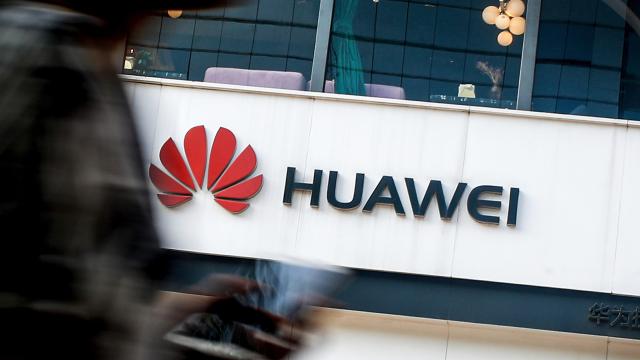After being placed on a so-called Entity List by the U.S. federal government, severely restricting its access to American technology, Chinese tech giant and world’s second-largest smartphone manufacturer Huawei is investigating using the Russian-made Aurora operating system as a replacement for Google’s Android OS on its mobile devices, Reuters reported on Tuesday.
As Reuters noted, Aurora is “Russia’s only OS and is not currently being used.” The project currently being discussed is installing the OS on hundreds of thousands of tablets slated to be used in Russia’s 2020 population census. However, one source told the news agency the census might be a test for using Aurora more broadly: “This is a pilot project. We see it as the first stage of launching the Russian OS on Huawei devices.”
A spokeswoman for Huawei additionally confirmed to Reuters that the company is discussing a possible arrangement with Russia’s Ministry of Communications:
Russia is discussing the use of Aurora OS on 360,000 Huawei tablets by August 2020.
“Huawei is interested in the project. It showed samples of tablets that could be used,” the second source said. Aurora is Russia’s only OS and is not currently being used.
Aurora is owned by telecommunications firm Rostelecom, which in turn is controlled by the Russian state. Rostelecom is also in charge of selecting the tablets that will be used for the census, and confirmed to Reuters that it is exploring “various options for collaboration” with Huawei.
The Trump administration placed Huawei on the Commerce Department’s Entity List earlier this year amid ruckus in the U.S. intelligence community that the company poses a national security threat and could be engaged in espionage. (At one point, the CIA reportedly tried to convince allies that Huawei’s telecommunications gear cannot be trusted by presenting “strong but not iron-cast” evidence the company is funded in part by Chinese military and intelligence assets.)
The U.S. has additionally accused Huawei of fraud and trade theft, and is seeking the extradition of its chief financial officer, Meng Wanzhou, from Canada on allegations of violating sanctions on Iran.
Huawei has strongly denied the accusations and sought to portray the issue as retaliation for outpacing U.S. companies. There has also been ample speculation that the Trump administration is targeting Huawei as a strong-arming tactic amid the ongoing U.S.-China trade war.
NPR recently reported that a “vocal and growing group of hawks” in China has been arguing that the country “should push back against the United States and avoid an agreement at all costs,” though both sides have shown signs of wavering.
Numerous Western companies have cut ties with Huawei, and once a grace period expires, it is slated to lose access to future Android updates. Huawei has instead turned to developing its own open-source mobile OS, HarmonyOS (Hongmeng).
Wired recently reported that HarmonyOS’s long-term viability as an Android replacement is in doubt, as its rushed development could lead to cutting corners, and Huawei phones running it won’t have access to Google’s sprawling app offerings.
